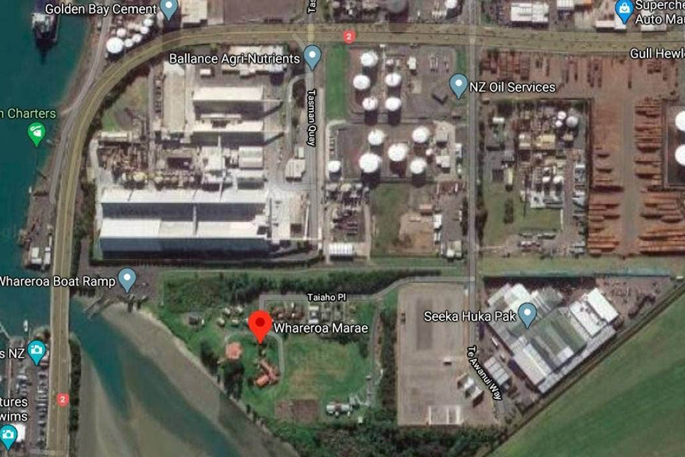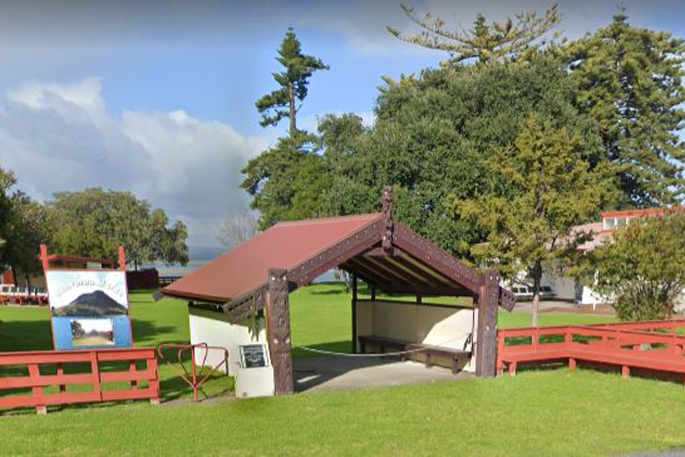The country's environment watchdog has delayed by more than a year a deadline that could effectively mean a ban on the use of a toxic gas used to treat logs for export.
In October 2010, the Environmental Protection Authority - EPA - told industry it had ten years to get the tech in place to stop allowing the significantly ozone-depleting gas methyl bromide from wafting into the atmosphere.
But, under pressure from industry, the agency has granted a number of extensions - most recently last month - leaving environmentalists and some living near ports furious.
Industry says full recapture is "impossible" and it is also annoyed at the EPA, saying it has been waiting years for approval from the agency for a cleaner product that could replace methyl bromide.
Methyl bromide kills insects and other pests, but is also toxic to humans and damages the ozone layer.
It is pumped under tarpaulin-covered stacks of logs - bound for export to India and China - then released into the air.
New Zealand is the world's six-highest user of the product, but international agreements require it to be phased out, and an Environmental Protection Authority decision in 2010 set a 10-year deadline for exporters to recapture 100 percent of the gas.
Joel Ngatuere is the Environment spokesperson for Whareroa marae, which is about one kilometre from the port in Mount Maunganui where the substance is regularly used.
He says locals feared it was making them sick and it was ridiculous that industry still had not got its act together.
"To have no action in place, to me it either shows complete incompetence or arrogance to have total disregard for our community... in terms of the impact that it is having on ourselves and also the ozone and climate change."
Joel says he was worried the EPA was too cozy with industry.
"I don't have faith they've got the ability to make an independent decision because they're dragging their feet when the evidence is clear that methyl bromide is an outdated practice."

Image: Google Maps.
Former Green Party MP and environmental activist Steffan Browning says the EPA should really be called the "Economic Protection Authority".
"Industry's had a long time to get it together. There is a recapture [technology] available. It just is that they have to dig into their pockets, out of the massive profits, and pay for it."
Environment lawyer Kate Barry-Piceno, who works with the Tauranga Moana Fumigant Action Group, says New Zealand was lowering its environmental standards to meet India's export requirements.
She says the EPA needed to stop bowing to industry, allowing exporters to weigh in every time a report did not favour its position.
"So this is just an endless ongoing attempt to delay the process and stagger it out, to provide comment upon comment upon comment on every environmental report that criticises the information that they provided."
Don Hammond from log and timber exporters industry group STIMBR, the Stakeholders In Methyl Bromide Reduction incorporated, says that when the process started back in 2010 they thought they would be able to come up with a solution, but now know compliance was "impossible".
He says the recapture process also created large amounts of toxic waste and was still no way to treat or recycle it.
"The only solution that's been given to us is bury it in the landfill.
"Well I'm sure you can see that it's not really a solution, it's just hiding it for the next generation to deal with."
Hammond says STIMBR has spent up to $40 million trying to comply, or investing in an alternative fumigant called EDN.
He says the substance - used in Australia - is less toxic, and an EPA document states it does not deplete ozone.
Hammond says STIMBR applied to the EPA to use the product nearly four years ago and was still waiting for a decision.
RNZ asked Hammond how he felt about the EPA's delay.
"Let me turn that around and say, would you be happy if you applied for something and waited four years and still had no visibility over what was going to happen?
"Look, I don't think it's any secret that we're very frustrated with the ... way this is playing out. And we've repeatedly offered to do whatever we can to assist the EPA."
Three-quarters of a billion dollars' worth of export logs were treated with methyl bromide in 2019, about a quarter of the total amount sent abroad.
Hammond says if industry was forced to comply come November, it could destroy a growing market and unless, EDN got the go-ahead soon, it would apply for another extension.
In a statement the EPA said staff were assessing new information on EDN and a report would go to the decision-making committee within months.
It said STIMBR asked for and was granted the extensions to keep using methyl bromide in order to "provide export certainty for the timber industry".
It said it could not go into detail while a decision on methyl bromide was pending.
Meanwhile the gas continues to be released into the environment.



1 comment
Disgraceful.
Posted on 29-05-2021 16:05 | By morepork
Justified by protecting the timber industry (which, of course, is important...) But said industry has had plenty of time to modernize and use an alternative. They should have been refused permission to extend, then they would have HAD to get serious about this. Maybe a small interruption to our exports would focus minds in Parliament AND the industry...
Leave a Comment
You must be logged in to make a comment.